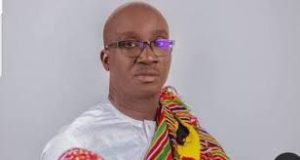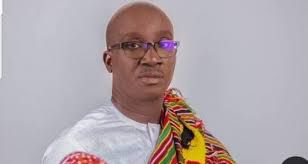
By Daniel John
Next month November 2024, The All Progressives Congress (APC) will formally take over Edo State as Senator Monday Okpebholo assumes office as Governor.
As the ruling party in both the state and at the federal level, the APC, under Governor Okpebholo, will focus on three critical areas: governance, politics, and stakeholder engagement and re-engagement. This follows the APC’s painstaking victory in the gubernatorial election.
The Edo off-cycle gubernatorial election was highly anticipated, with 17 candidates contesting for the governor’s office, as officially published by the Independent National Electoral Commission (INEC). The election took place across 18 Local Government Areas (LGAs), 192 wards, and 4,519 polling units.
This election played a crucial role in shaping the direction of Edo State’s political leadership for the next tenure.
The official results released by INEC confirmed a decisive victory for the APC, though not without some surprising outcomes. The APC received a total of 291,667 votes, surpassing the People’s Democratic Party (PDP), which garnered 247,274 votes. This resulted in a victory margin of 44,393 votes, indicating a strong lead for the APC but from a certain quarter, so to speak!
Examining the vote distribution, one might conclude that certain stakeholders have lost relevance, while others remain deeply connected to their constituents.
Like the other 36 states, Edo also has three senators: Bernard Neda Imasuen (Edo South), Monday Okpebholo (Edo Central), and Adams Aliyu Oshiomhole (Edo North).
In Edo North, the APC achieved a clean sweep, winning all six local governments in the senatorial district. This reflects the party’s stakeholders dominance, strong influence, and connection with the populace in the northern region of the state.
In Edo South, the APC secured victories in 3 out of 7 LGAs, while the PDP won the remaining 4. In Edo Central, the APC won in 2 out of 5 LGAs, highlighting a competitive race between the two major parties in the central district. This suggests the party may need to reinvigorate its momentum in these areas.
In summary, the senatorial performance was as follows:
– **Edo Central:** APC lost, winning only 2 out of 5 LGAs.
– **Edo South:** APC lost, winning only 3 out of 7 LGAs.
– **Edo North:** APC won, securing all 6 LGAs.
The most surprising outcomes were seen in the performance of each constituency of House of Representatives. While some members displayed their strong connections with constituents, even at the grassroots level, others seemed out of touch, with some even losing in their polling units and entire constituency and local government areas. Here is a summary of the constituency performances:
1. **Akoko-Edo**: APC won the LGA.
2. **Egor/Ikpoba Okha**: APC won 1, lost 1.
3. **Esan Central/Esan West/Igueben**: APC won 2, lost 1.
4. **Esan North East/Esan South East**: APC lost all LGAs.
5. **Etsako East/Etsako West/Etsako Central**: APC won all LGAs with strong results.
6. **Oredo**: APC won the LGA.
7. **Orhionmwon/Uhunmwonde**: APC won 1, lost 1.
8. **Ovia North East/Ovia South West**: APC lost all the LGAs.
9. **Owan East/Owan West**: APC won all LGAs.
The APC’s victory was largely attributed to grassroots support by some members in Edo North.
The APC’s strong performance in the northern senatorial district and across various constituencies can be attributed to several factors. In recent years, stakeholders, particularly some House of Representatives members, have invested significantly in rebuilding political structures across Edo North and the broader state. This groundwork played a direct role in the gubernatorial election results.
As Senator Monday Okpebholo assumes office as Governor, it is essential to maintain the support of key stakeholders, especially those in Edo North and other constituencies who contributed to the party’s success. Recognizing their commitment, loyalty, and support through compensation, motivation, and acknowledgment will be vital to sustaining the party’s momentum.
John writes from Abuja, mohdee@oal.com


